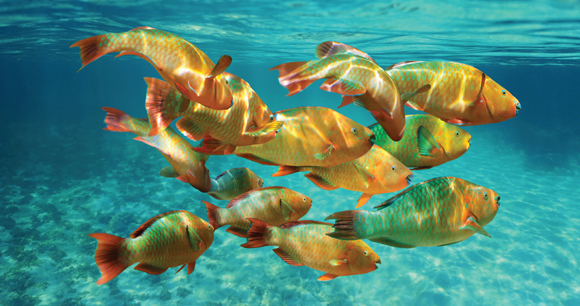In March and April, AWI marine animal program director Susan Millward and consultant Courtney Vail participated in the ninth meeting of the Scientific and Technical Advisory Committee to the United Nations Environment Programme’s Protocol Concerning Specially Protected Areas and Wildlife in the Wider Caribbean (SPAW). COVID precautions meant the normally three-day meeting was held virtually and spread out over five days. The inability to meet face to face at this usually harmonious meeting, along with technical difficulties and connectivity issues (including for the meeting chair during the March sessions), led to a series of rather disjointed and unusually contentious sessions. Despite a heavy agenda, relatively little ended up being achieved even after several preparatory meetings were held. The parties were forced to extend the meeting into April, mainly because so much time was taken up discussing process, resolving connectivity issues, and ensuring that all participants could hear the appropriate interpreters.

AWI has been to many of these meetings over the years; typically, they involve presentations on topics and proposals, discussions, negotiations, and ultimately agreement, sometimes after long encounters outside the scheduled proceedings—during coffee breaks, lunch gatherings, evening events, and in the corridors outside meeting rooms. This meeting—dysfunctional, argumentative, confusing, and inefficient—clearly showed how important those informal face-to-face encounters are for civil and productive debate.
With no consensus, the committee postponed key agenda items—such as decisions regarding the listing of several species of shark and parrotfish on SPAW appendices (denoting protection status). Preparation for these discussions had gone on for months, so it was very disheartening when the meeting did not even get to the crux of the issues at hand. The United States, unfortunately, was instrumental in preventing consensus on whether to even discuss the species listing proposals. It argued that the correct procedures had not been followed, and even after a UNEP lawyer was called in to help move things along by providing legal advice, the difference of opinion regarding treaty interpretation was not resolved. Eventually, the listing proposals were tabled for a later meeting. In advocating the deferment, the United States argued that individual parties should simply implement their own domestic protections for the affected species in the interim, but this stance clearly undermines the treaty, in addition to wasting a great deal of time.
Nevertheless, there were positive notes: A marine protected area proposed by and located in the Dominican Republic received support. And one of AWI’s main goals for the meeting—to garner support for the creation of the first marine mammal Regional Activity Network in the Wider Caribbean—was also successful. Proposed by the Netherlands Antilles and supported by a technical paper co-authored by Courtney, this network would provide for better communication and collaboration among those working on marine mammal protection across the Caribbean. It would also ensure proper resourcing for vital research into the status of the dozens of marine mammal species in the region, as well as mitigate the many threats they face, ranging from directed hunts to entanglement and ocean noise. The Scientific and Technical Advisory Committee meeting’s recommendations will be put forward at the meeting of the SPAW contracting parties, scheduled (again, virtually) for July.